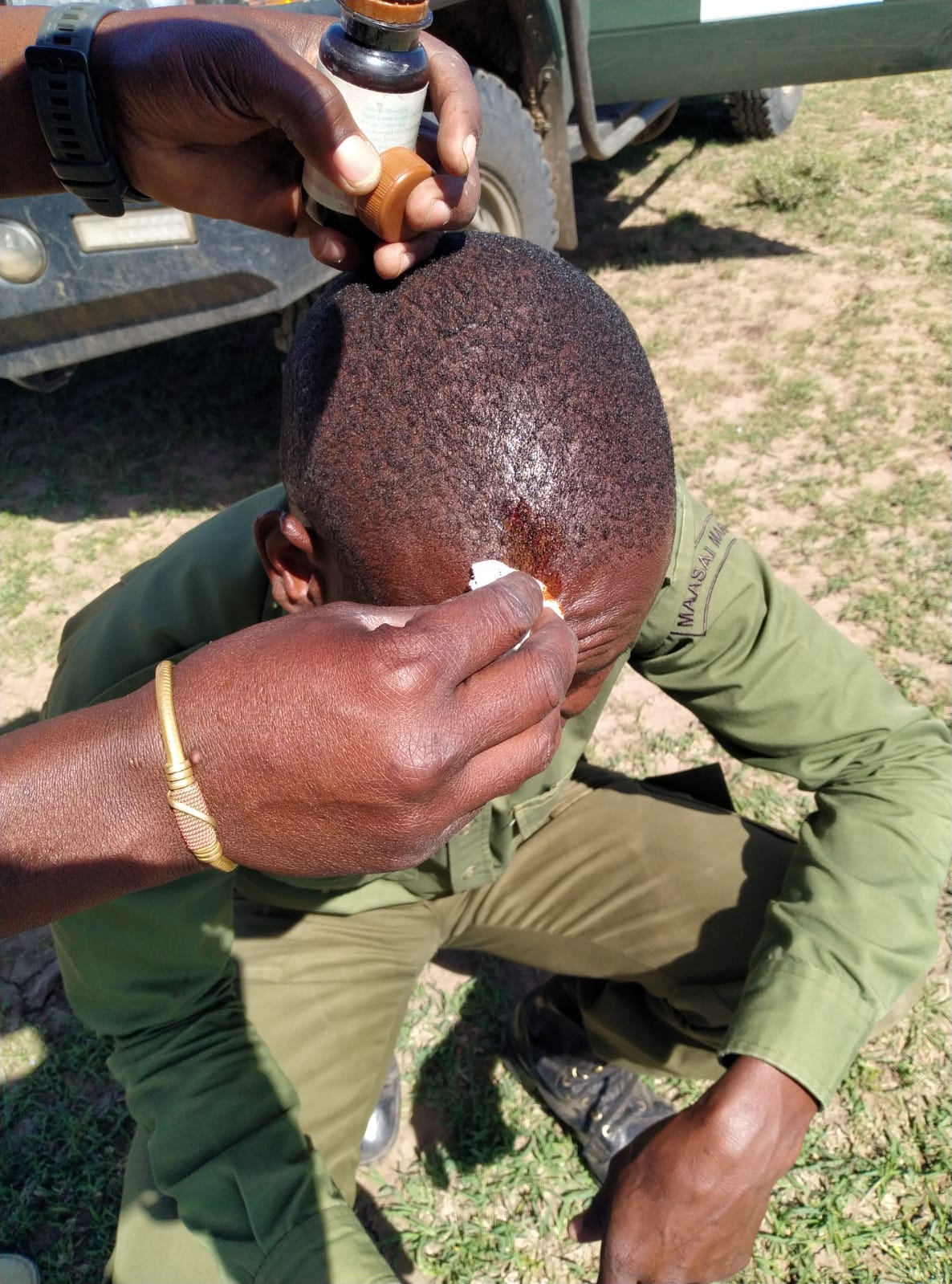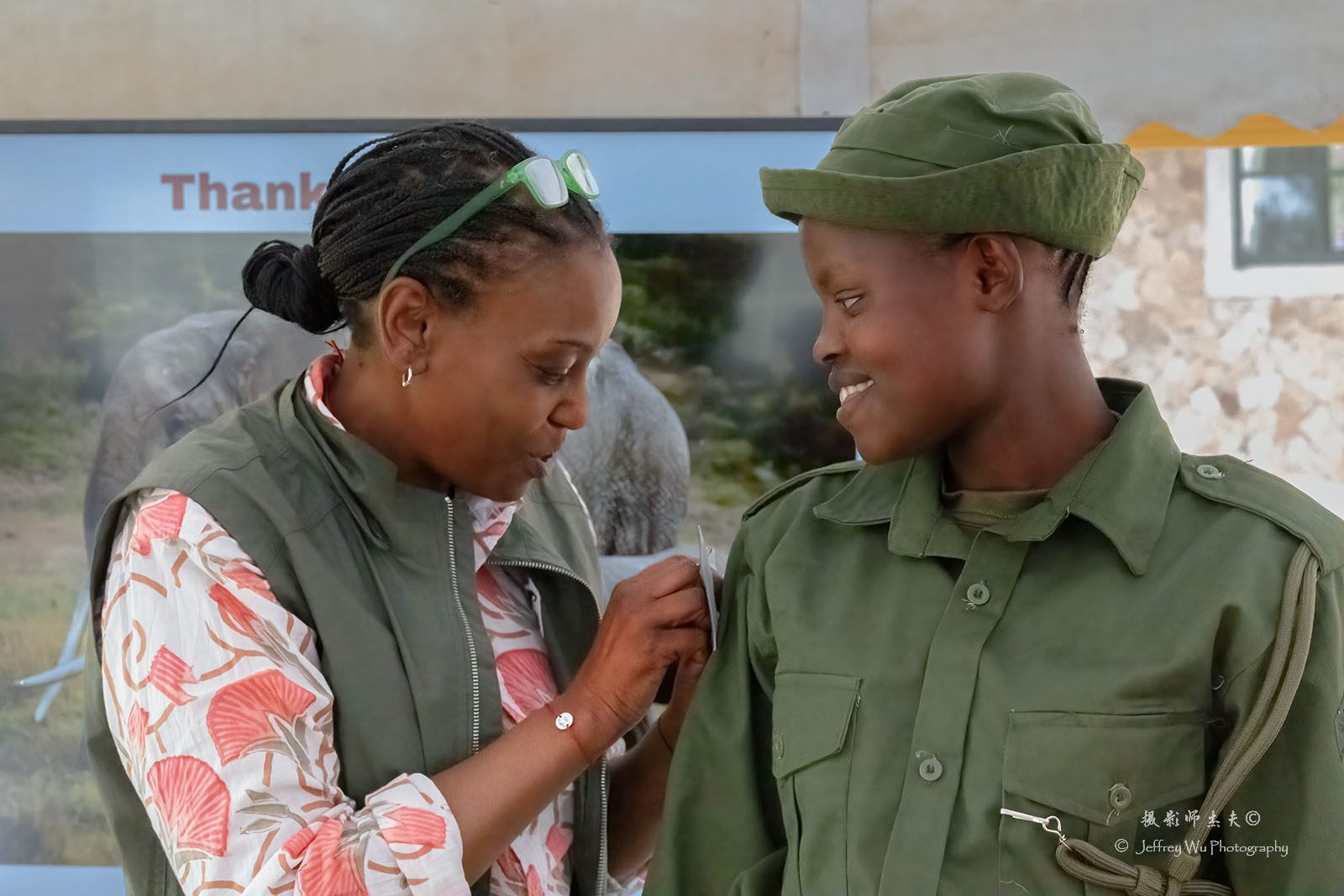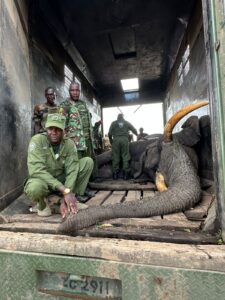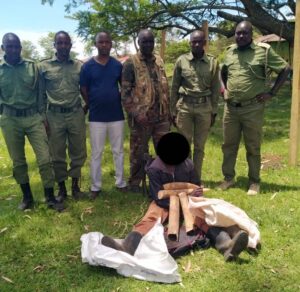 The Mara Elephant Project intelligence unit was very successful in the fourth quarter and had two ivory busts in October. On October 4, Kenya Wildlife Service (KWS) arrested two suspects in possession of 26 kg (57 lbs.) of elephant ivory based on MEP intelligence. The two suspects were transporting 13 pieces of tusks in the trunk of their car and were arrested near the Tanzania border. Later in the month, on October 26, KWS arrested one suspect with four pieces of ivory weighing 10.5 kg based on MEP intelligence. The joint operation also included the MEP “Golf” ranger team stationed nearby protecting the Nyakweri Forest. The ivory appeared to be old and was recently unearthed with the intention to sell. Then, in November, the team arrested one suspect with 13 kg of ivory, which meant a total of 74 kg of ivory seized in the fourth quarter based on MEP intelligence.
The Mara Elephant Project intelligence unit was very successful in the fourth quarter and had two ivory busts in October. On October 4, Kenya Wildlife Service (KWS) arrested two suspects in possession of 26 kg (57 lbs.) of elephant ivory based on MEP intelligence. The two suspects were transporting 13 pieces of tusks in the trunk of their car and were arrested near the Tanzania border. Later in the month, on October 26, KWS arrested one suspect with four pieces of ivory weighing 10.5 kg based on MEP intelligence. The joint operation also included the MEP “Golf” ranger team stationed nearby protecting the Nyakweri Forest. The ivory appeared to be old and was recently unearthed with the intention to sell. Then, in November, the team arrested one suspect with 13 kg of ivory, which meant a total of 74 kg of ivory seized in the fourth quarter based on MEP intelligence.
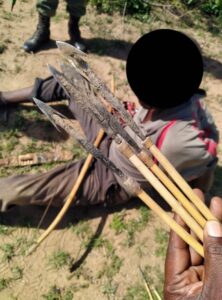 There was a rare incident on November 26, when the MEP mobile team was in pursuit of a suspect in possession of poisoned arrows with the intention of targeting elephants. During the chase the suspect resisted arrest and MEP ranger Gideon was injured and needed immediate first aid. After the suspect was apprehended, MEP rangers administered first aid to Gideon and transported him to a local hospital where he received treatment. He’s since made a full recovery and is already back on patrol and, thanks to the ranger’s quick response, elephants were not harmed during the attack. It’s been several years since MEP has recovered poisoned arrows alongside our government partners in the Mara.
There was a rare incident on November 26, when the MEP mobile team was in pursuit of a suspect in possession of poisoned arrows with the intention of targeting elephants. During the chase the suspect resisted arrest and MEP ranger Gideon was injured and needed immediate first aid. After the suspect was apprehended, MEP rangers administered first aid to Gideon and transported him to a local hospital where he received treatment. He’s since made a full recovery and is already back on patrol and, thanks to the ranger’s quick response, elephants were not harmed during the attack. It’s been several years since MEP has recovered poisoned arrows alongside our government partners in the Mara.
The two MEP / Sheldrick Wildlife Trust (SWT) Mau De-Snaring Units continue to have an impact on increasing protection for the Mau Forest and the wildlife that call it home. The men and women of the “Charlie” and “Alpha” teams were successful in the fourth quarter rooting out illegal poaching and deforestation activities. The two teams joined KWS and Kenya Forest Service (KFS) on joint patrols. The “Charlie” ranger team on a joint patrol with KFS arrested four suspects in different locations inside the forest for illegal logging and charcoal production. They also destroyed four active kilns and confiscated pieces of timber, an axe and other charcoal making supplies. The “Alpha” ranger team while on the joint patrol with KWS and KFS arrested six suspects for habitat destruction activities and destroyed two kilns and five sacks of charcoal. On December 30, the “Alpha” unit arrested five suspects that had an active charcoal production operation inside the forest. Alongside the arrest with partners KFS, the team also destroyed five active kilns and confiscated five bags of charcoal.
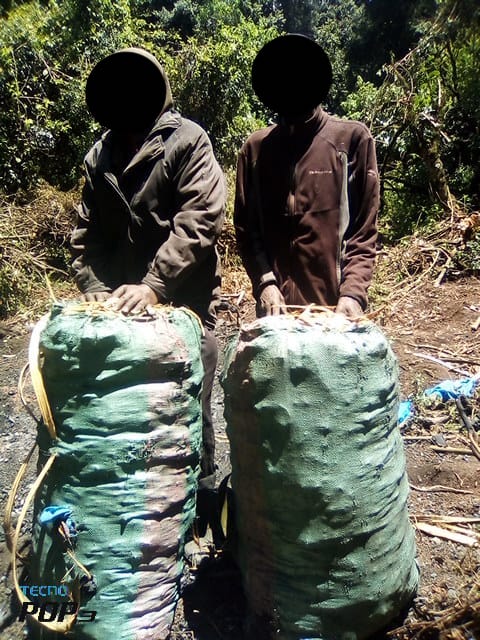
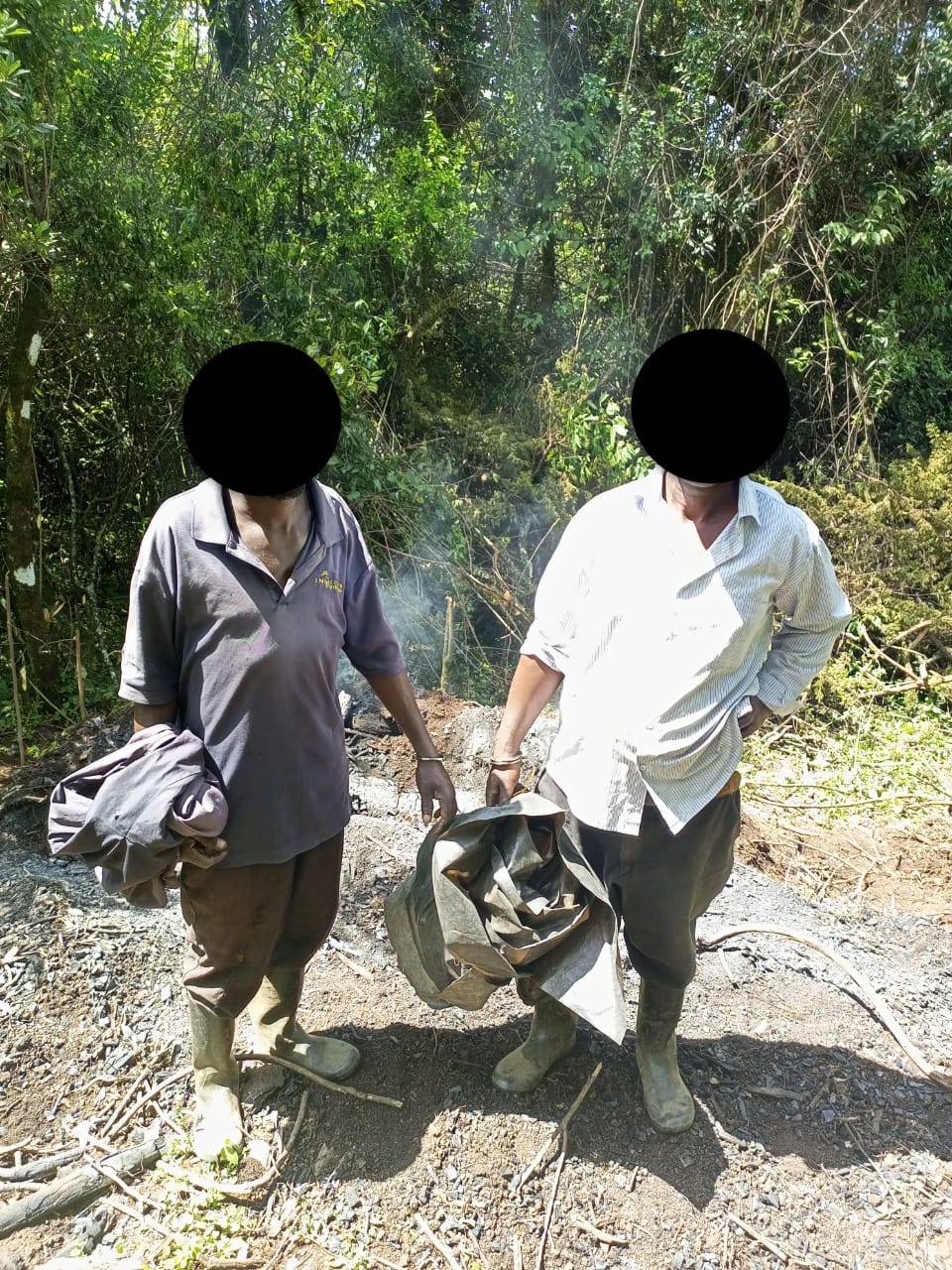
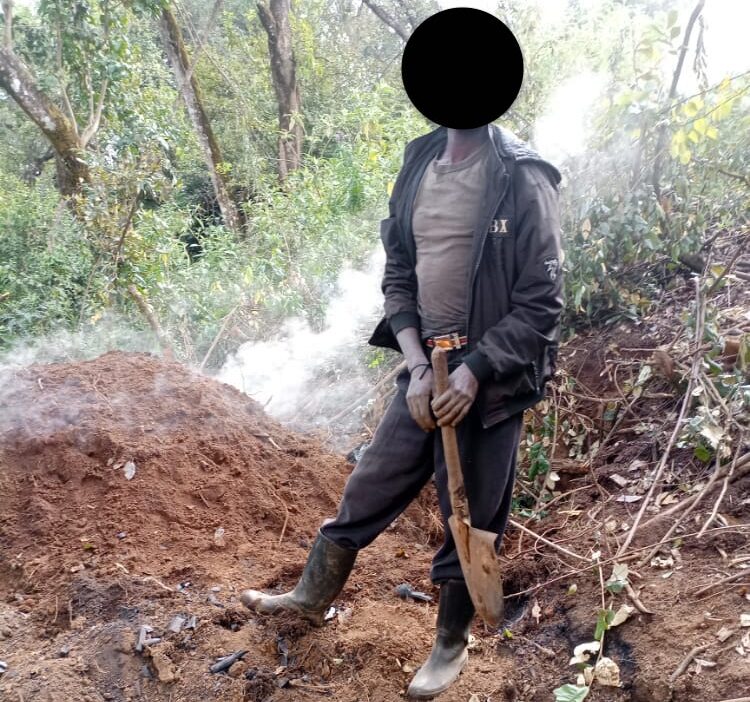
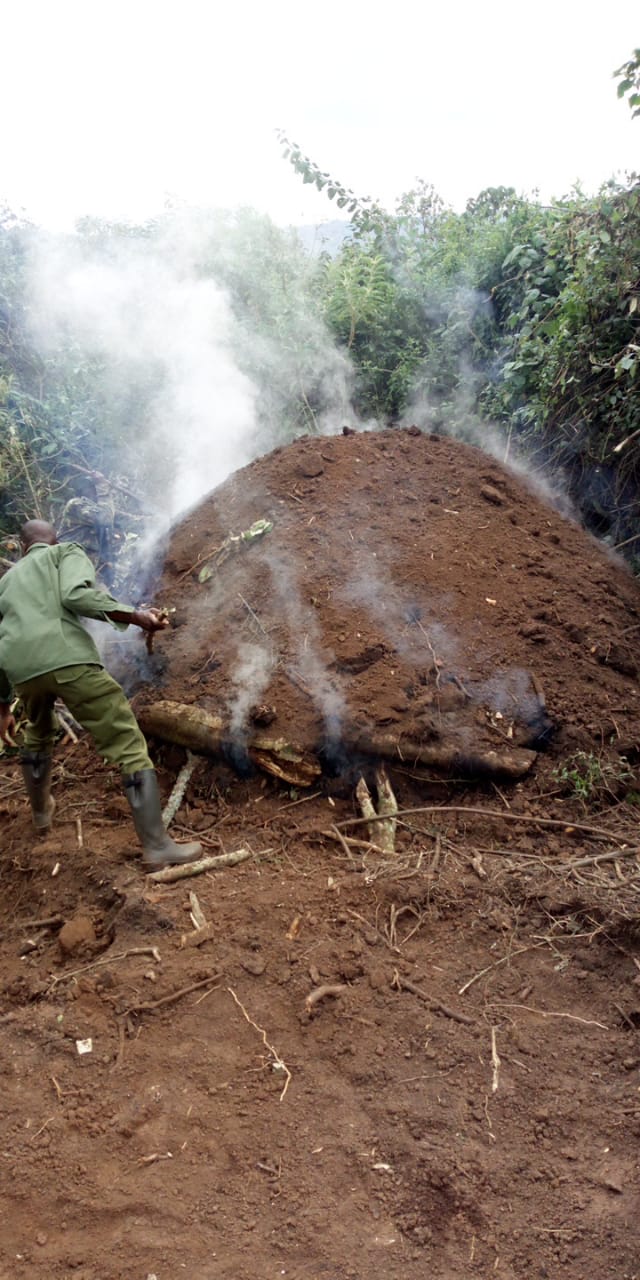


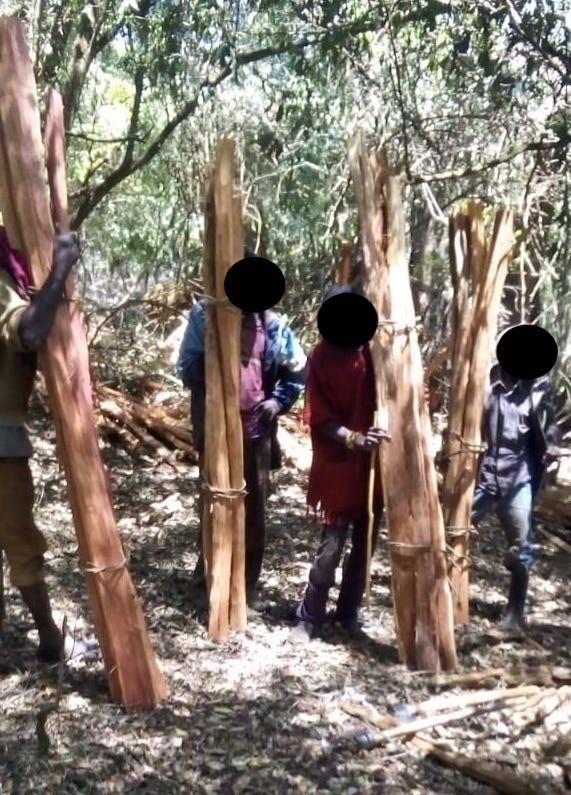
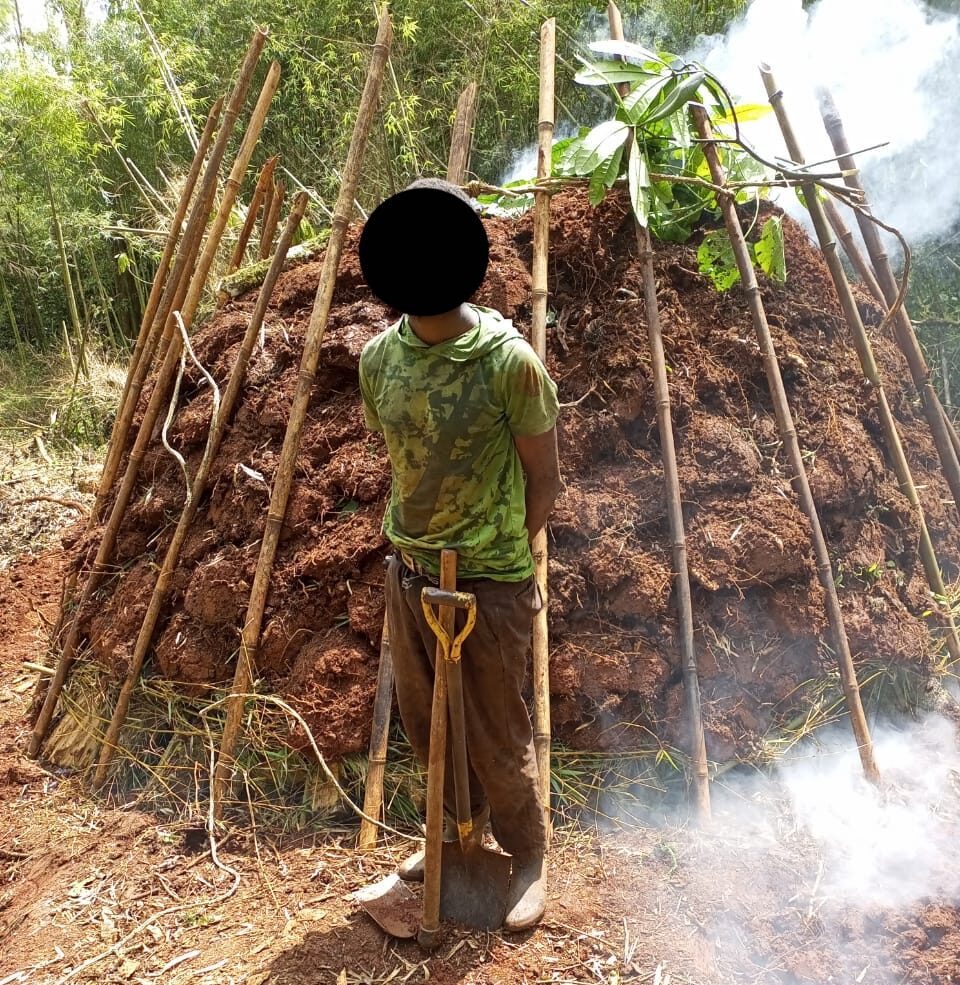
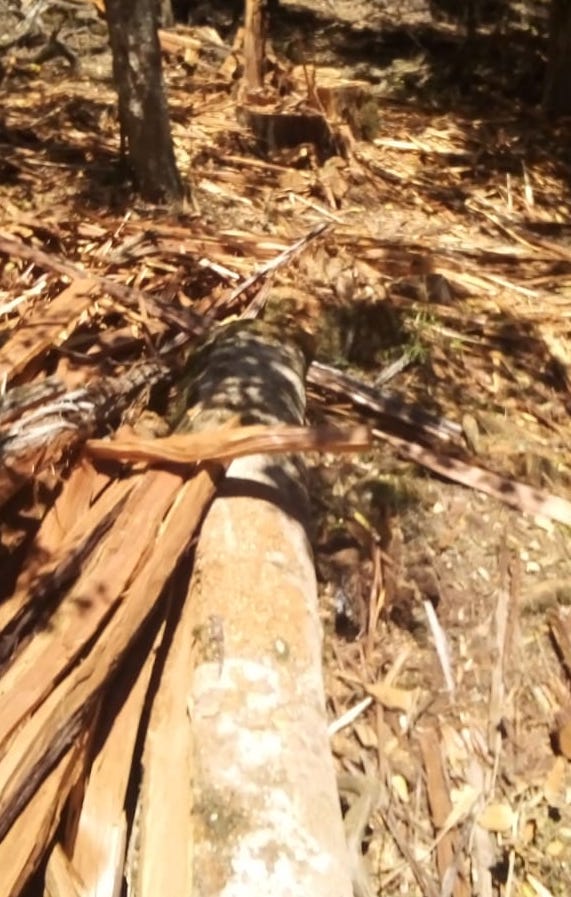
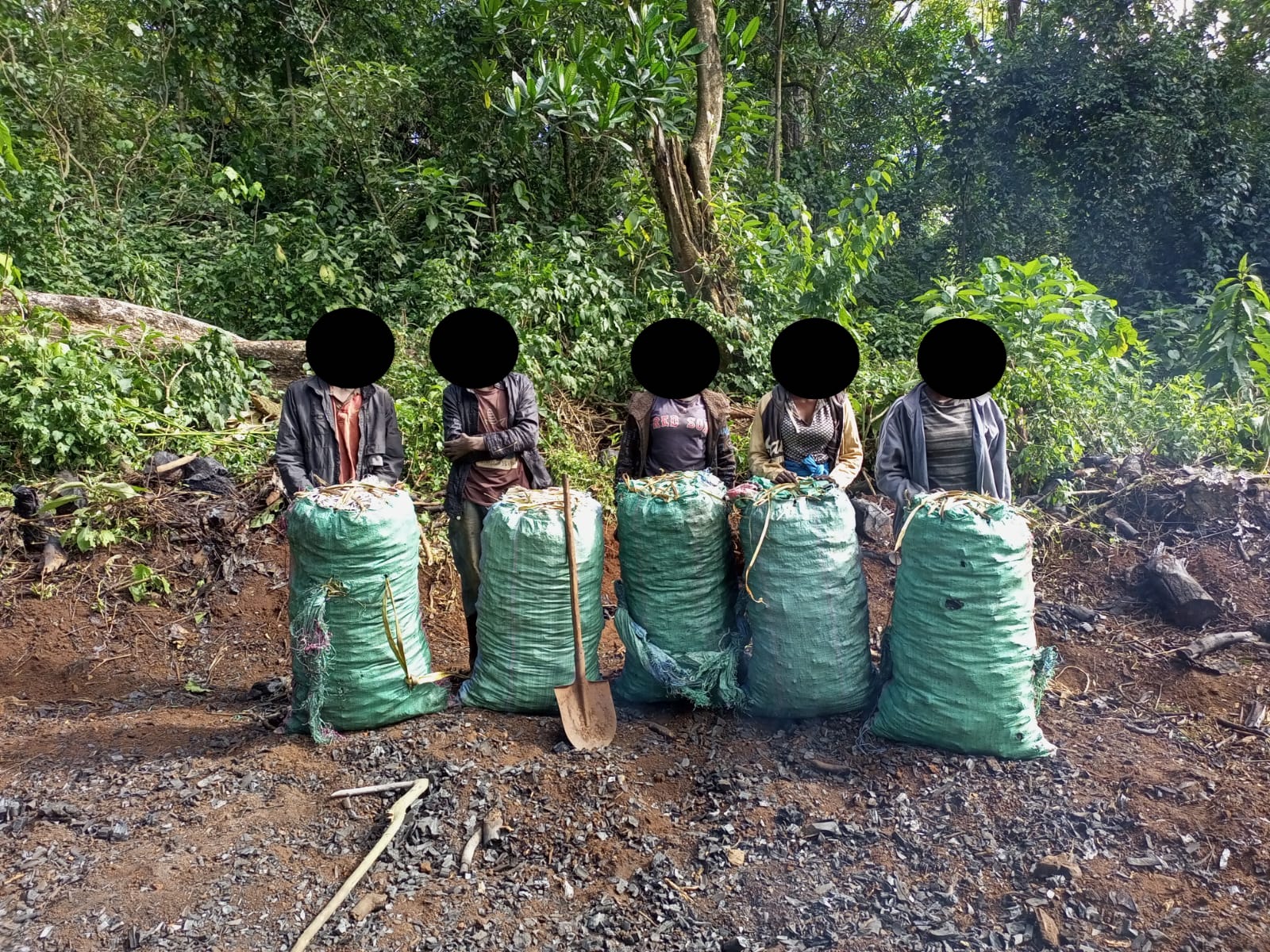
Overall, in the fourth quarter, all of our ranger teams alongside KWS, KFS and the Bongo Surveillance Project successfully confiscated 135 bags of charcoal, 1,412 pieces of timber, 446 posts, arrested 66 habitat destruction suspects and destroyed 114 kilns.
MEP rangers removed 57 snares, arrested three bushmeat poaching suspects and confiscated 12 kg of bushmeat in the fourth quarter. On December 2, the “Charlie” team removed 30 snares alone in one day in the Mau Forest, and in December, the “Golf” team alongside KWS arrested one suspect with 12 kg of zebra bushmeat.
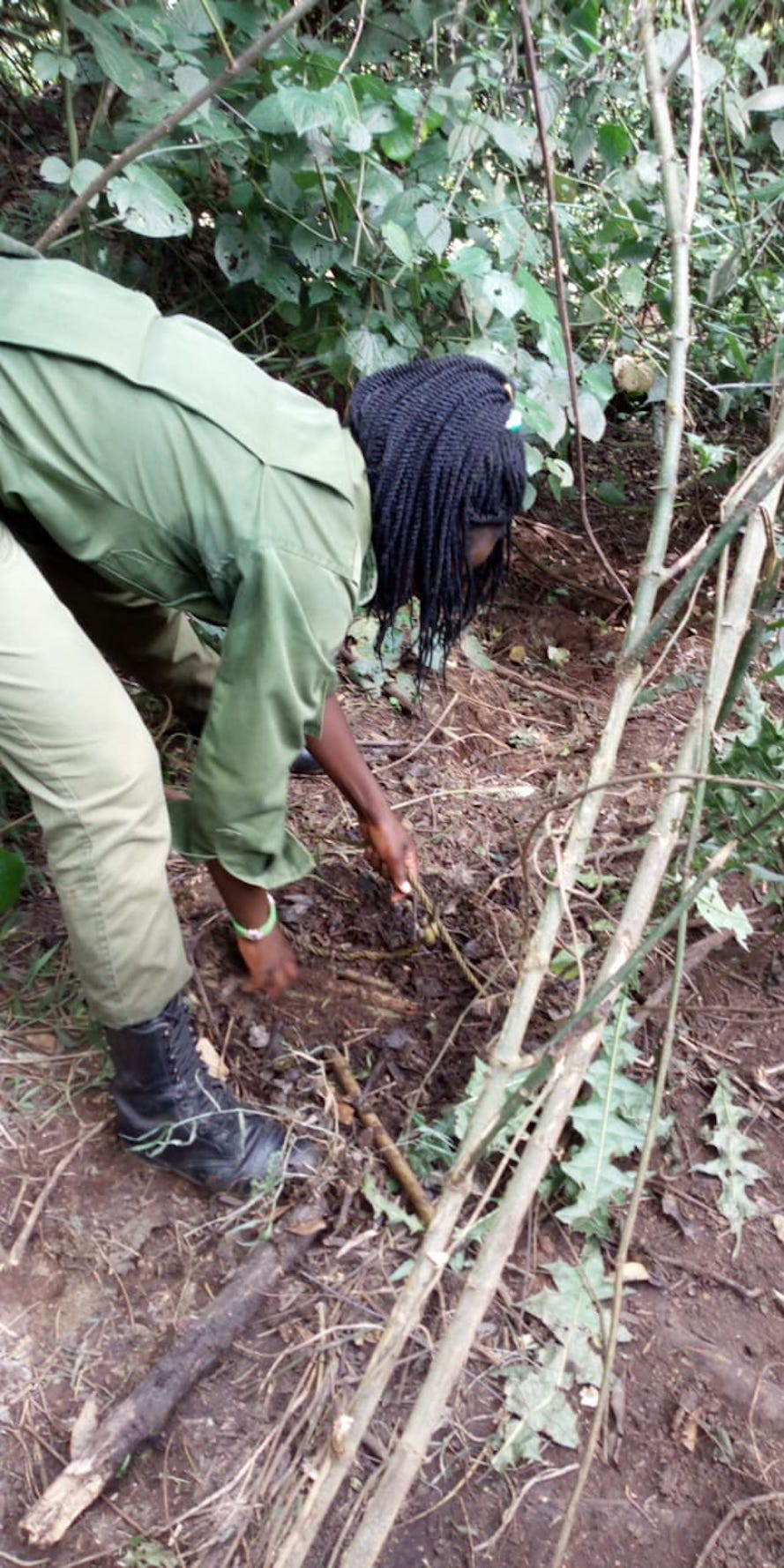
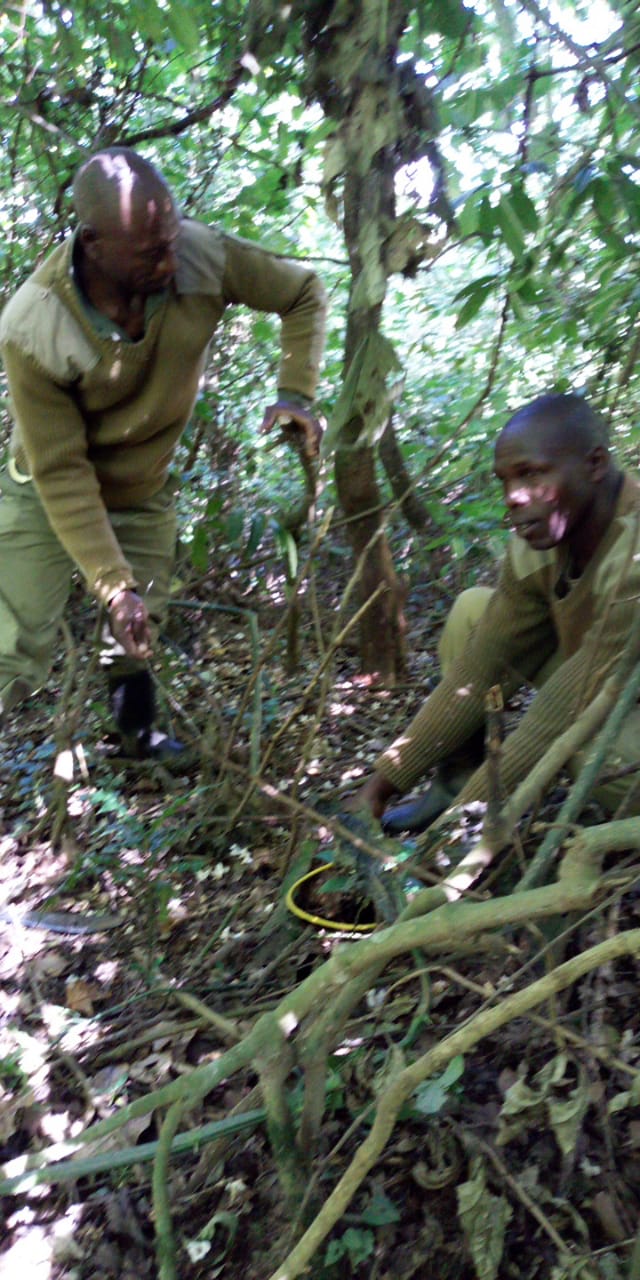
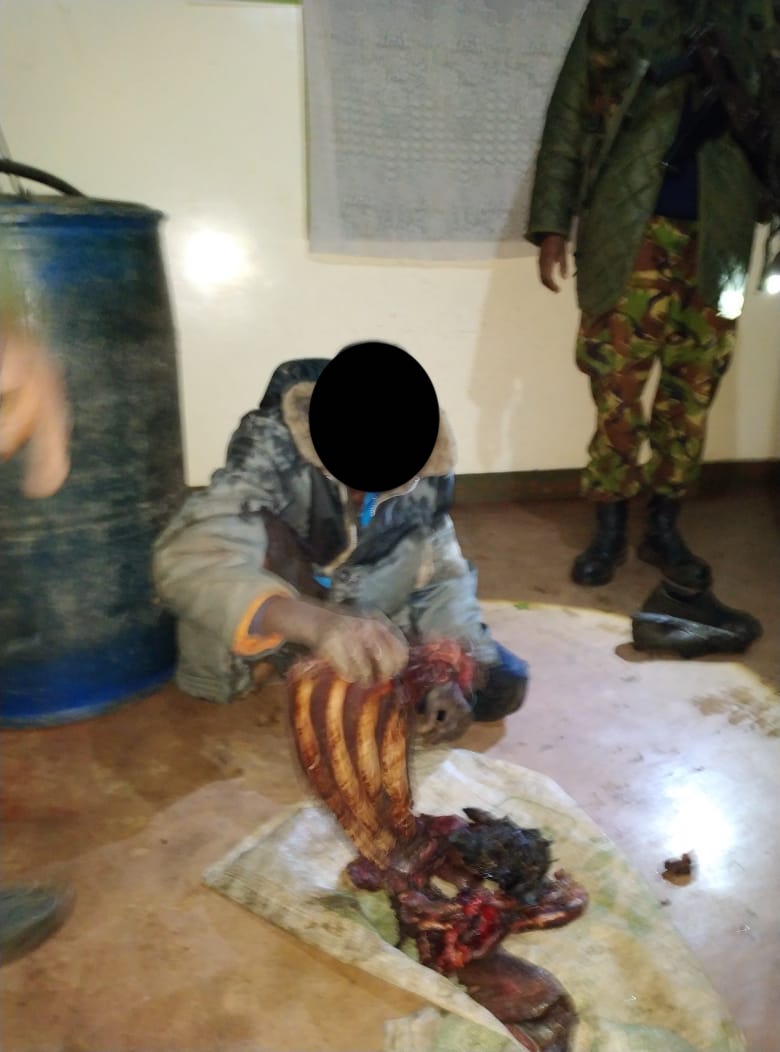
 There was a high level of conflict in the fourth quarter, which meant MEP rangers were rapidly responding to all wildlife involved in conflict incidents with the community and assisting partners with elephant treatments. In October, the MEP “Foxtrot” ranger team received a call from the community that a giraffe was stuck inside a maze of fences within a settlement area, and it needed assistance to be removed. The rangers responded to move the giraffe back to the safety of the conservancy. On October 13, the MEP mobile team responded to collared elephant Polaris and his herd of nine bulls inside a community area. MEP’s community rangers responded to push them back into the safety of a nearby conservancy and ensure the community and elephants were protected in the process. A week later, the MEP mobile team was called in to push a herd of 17 elephants out of community land and back into a protected area. They responded and used their vehicle and firecrackers, which never actually touch the elephants, to push the herd back to safety.
There was a high level of conflict in the fourth quarter, which meant MEP rangers were rapidly responding to all wildlife involved in conflict incidents with the community and assisting partners with elephant treatments. In October, the MEP “Foxtrot” ranger team received a call from the community that a giraffe was stuck inside a maze of fences within a settlement area, and it needed assistance to be removed. The rangers responded to move the giraffe back to the safety of the conservancy. On October 13, the MEP mobile team responded to collared elephant Polaris and his herd of nine bulls inside a community area. MEP’s community rangers responded to push them back into the safety of a nearby conservancy and ensure the community and elephants were protected in the process. A week later, the MEP mobile team was called in to push a herd of 17 elephants out of community land and back into a protected area. They responded and used their vehicle and firecrackers, which never actually touch the elephants, to push the herd back to safety.
The MEP “Charlie” and “Golf” ranger teams on December 27 and 29, respectively, responded to two incidents of elephant’s crop raiding at night and leaving behind destruction once it’s light. They destroyed maize crops, cabbage, beans, spinach and bananas. After the incidents, they met with the community to discuss solutions to prevent any future damage. In early December, rangers from the MEP “Alpha” team attended the funeral of a woman killed by an elephant during a conflict incident. The community support was encouraging as our men and women are dedicated to preventing the worst-case scenario, like this, from happening.

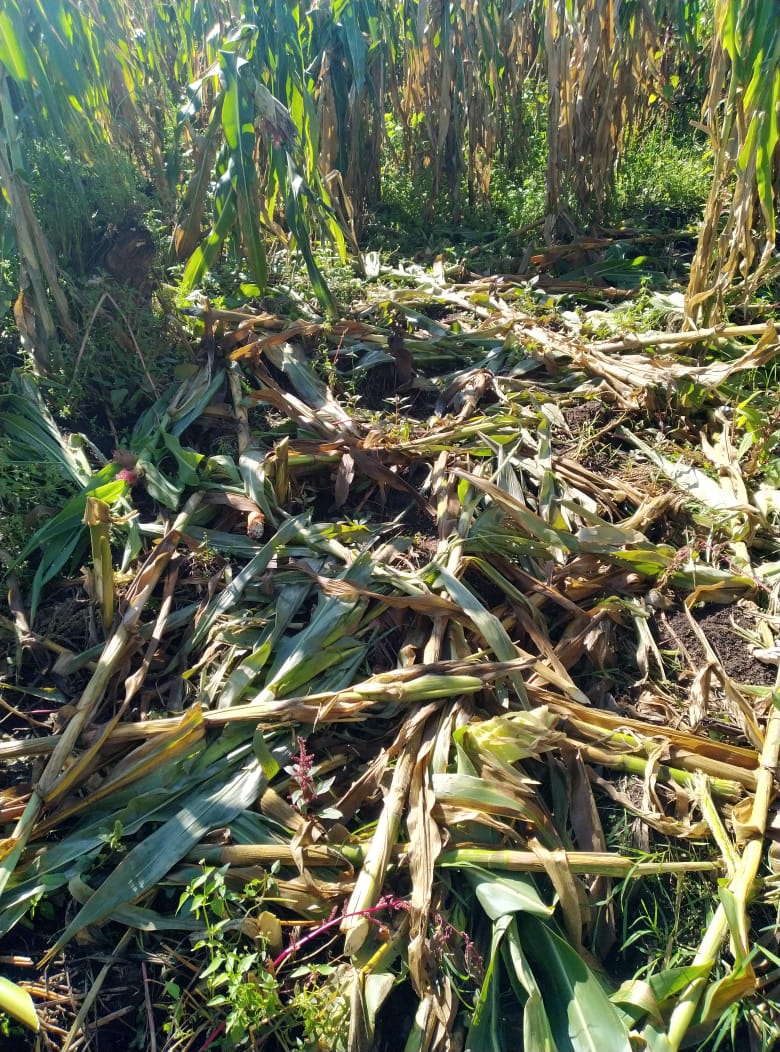

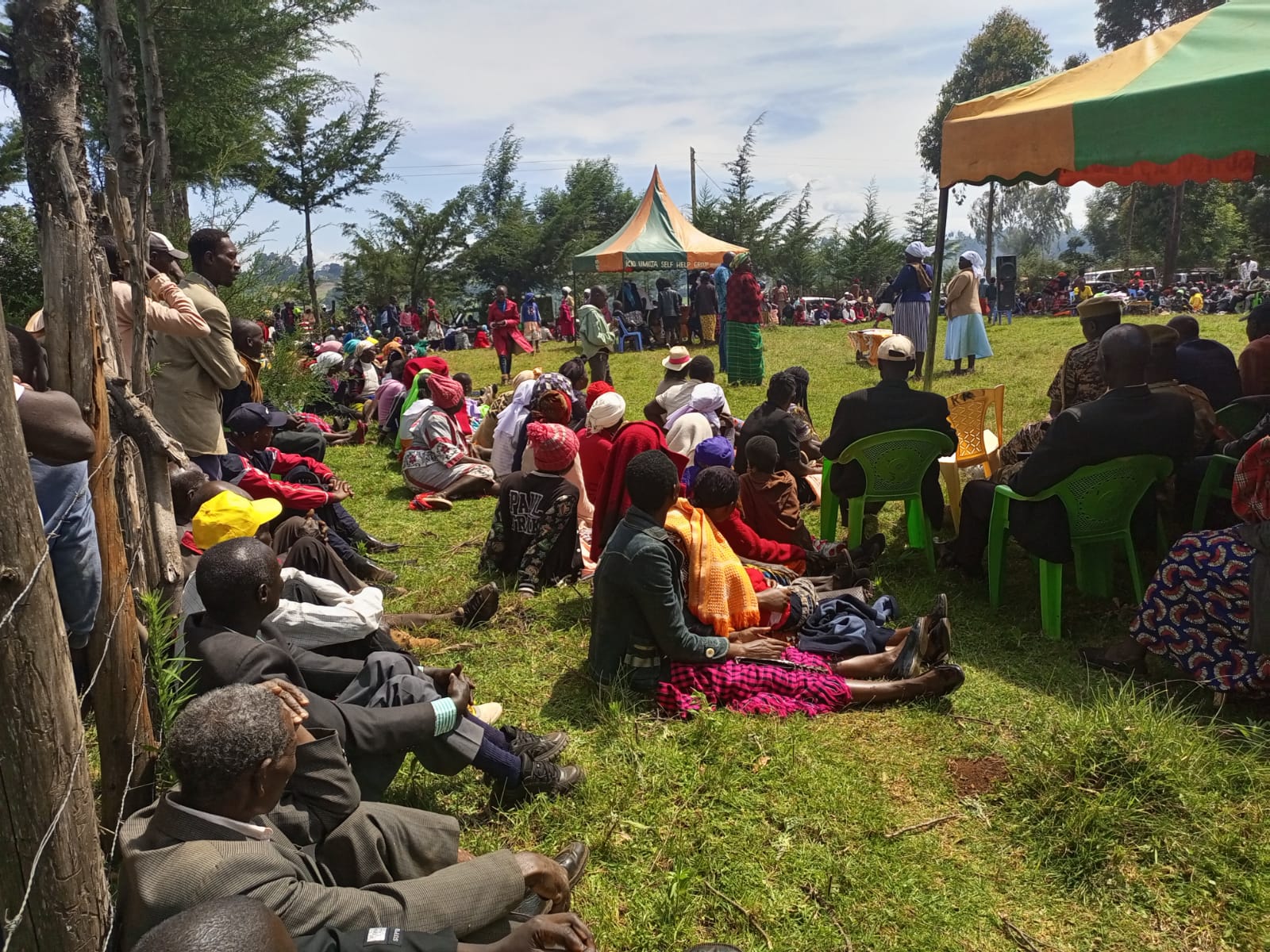
There were eight total elephant treatments that MEP assisted our partners at KWS and SWT with in the fourth quarter. On October 13, MEP received reports from Olarro Conservancy rangers that an injured bull elephant was in need of veterinary treatment. We partnered with KWS Vet Dr. Michael Njoroge from the SWT Mobile Vet Unit and immediately responded to treat him. He had a spear wound on his side most likely a result of conflict with nearby communities. Once treated, the bull was back on his feet. Then, on October 17, MEP’s mobile ranger team partnered with Dr. Njoroge again to treat a bull elephant with multiple conflict-related injuries. He had two spear wounds, five arrow wounds and it was a team effort to intervene in time. The treatment was successful, and the next day the mobile team monitored him in Ol Kinyei Conservancy and noted that he was recovering well.
In November, while monitoring three bulls in the Nyakweri Forest, the “Golf” team noted an elephant with an injury in need of immediate vet intervention. We called in our partners KWS Vet Dr. Ephantus Ndambiri with the SWT Mobile Vet Unit and assisted them with treating the spear wound on the injured bull. A few days after his treatment, the rangers monitored him recovering alongside seven other elephants noting that he was looking to be healing well. Also in November, an elephant calf was reported with an injury in need of immediate vet intervention. The KWS Vet Dr. Ephantus Ndambiri from the SWT Mobile Vet Unit treated the spear wound on the young bull’s right rear leg and he was back on his feet and reunited with his herd after treatment. We’re grateful to have partners that work toward elephant protection alongside us.
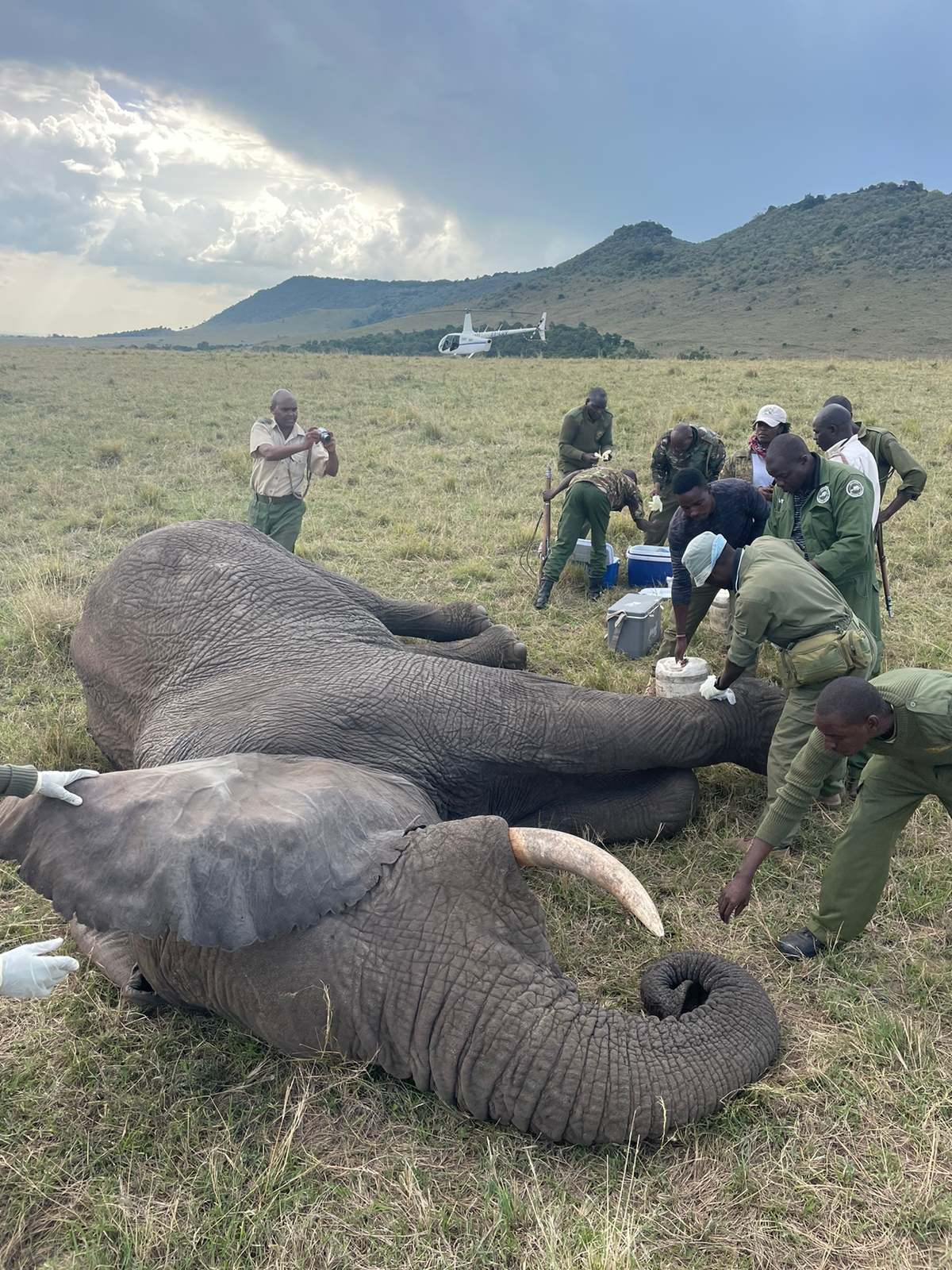
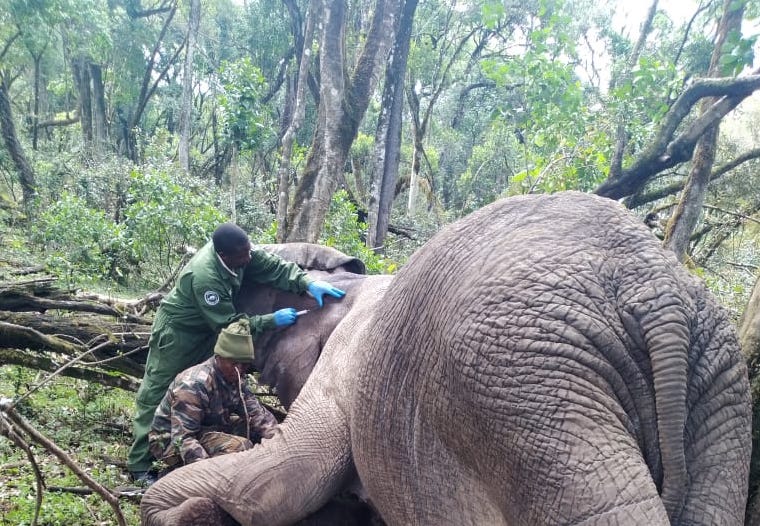
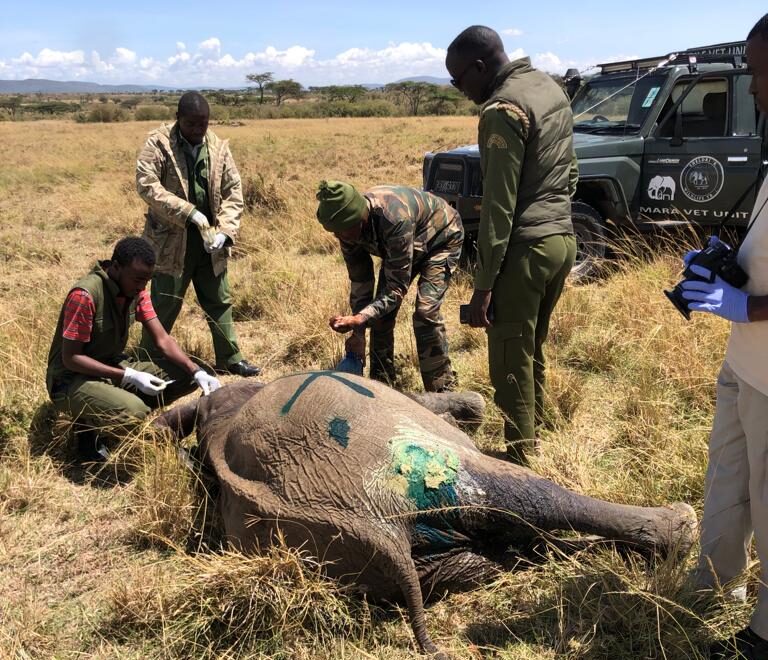

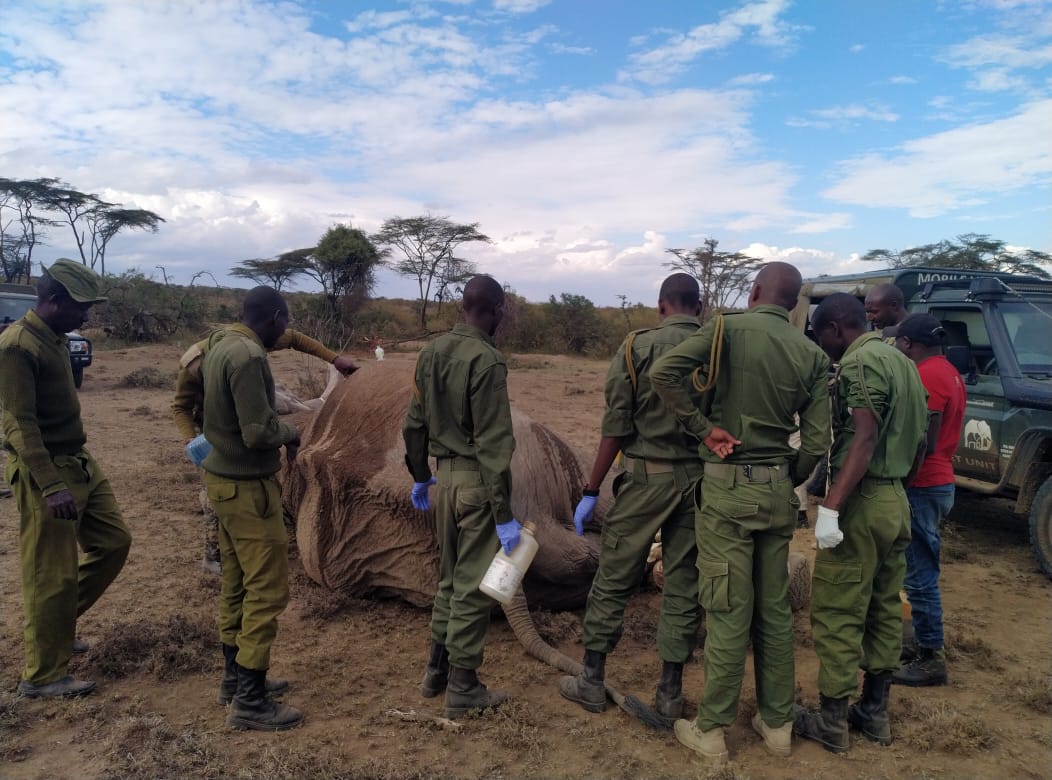
Monitoring elephants is a key task for MEP rangers. Here are some photos of the elephant sightings from the fourth quarter, all noted to be healthy and in protected areas.
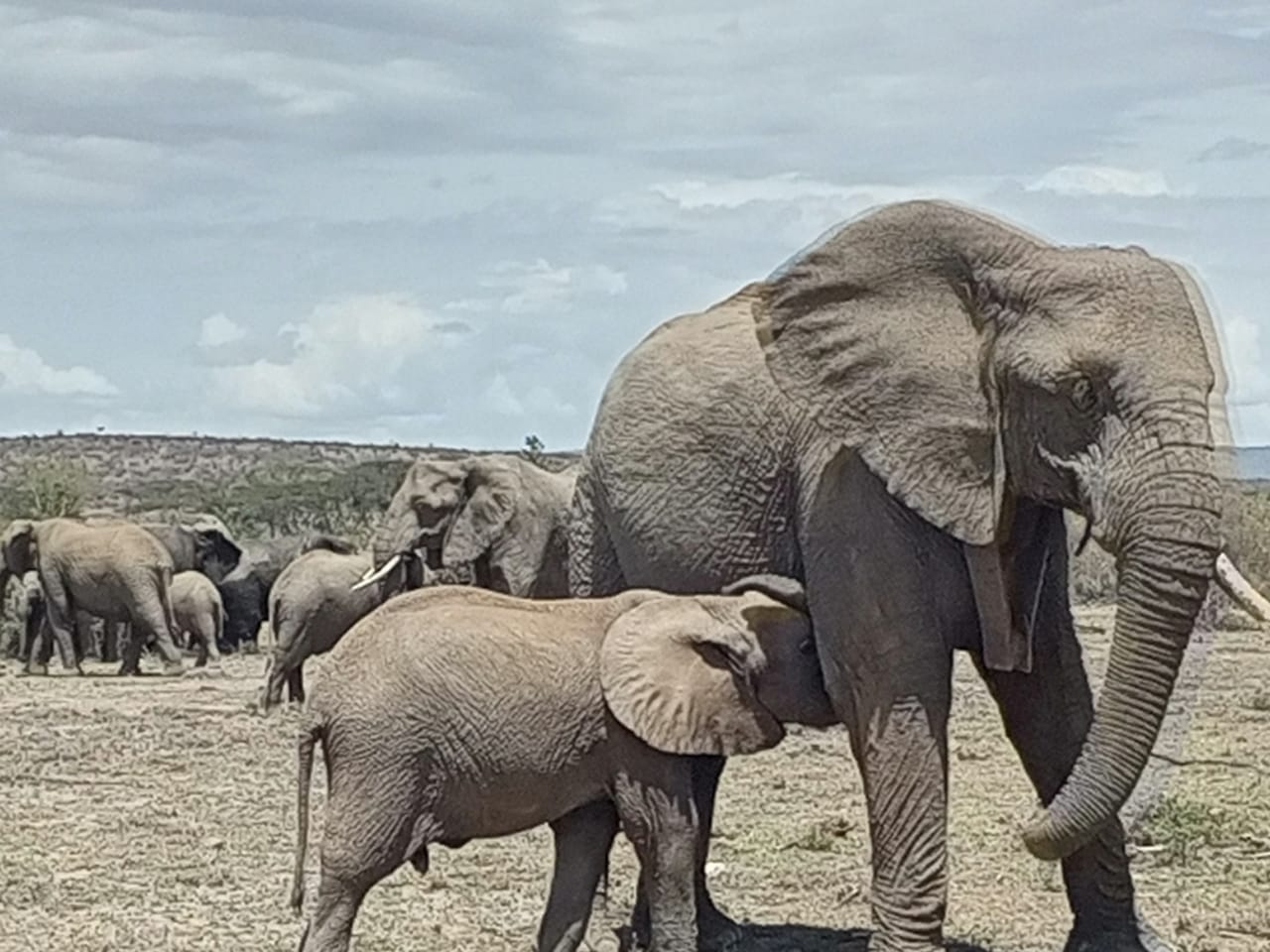
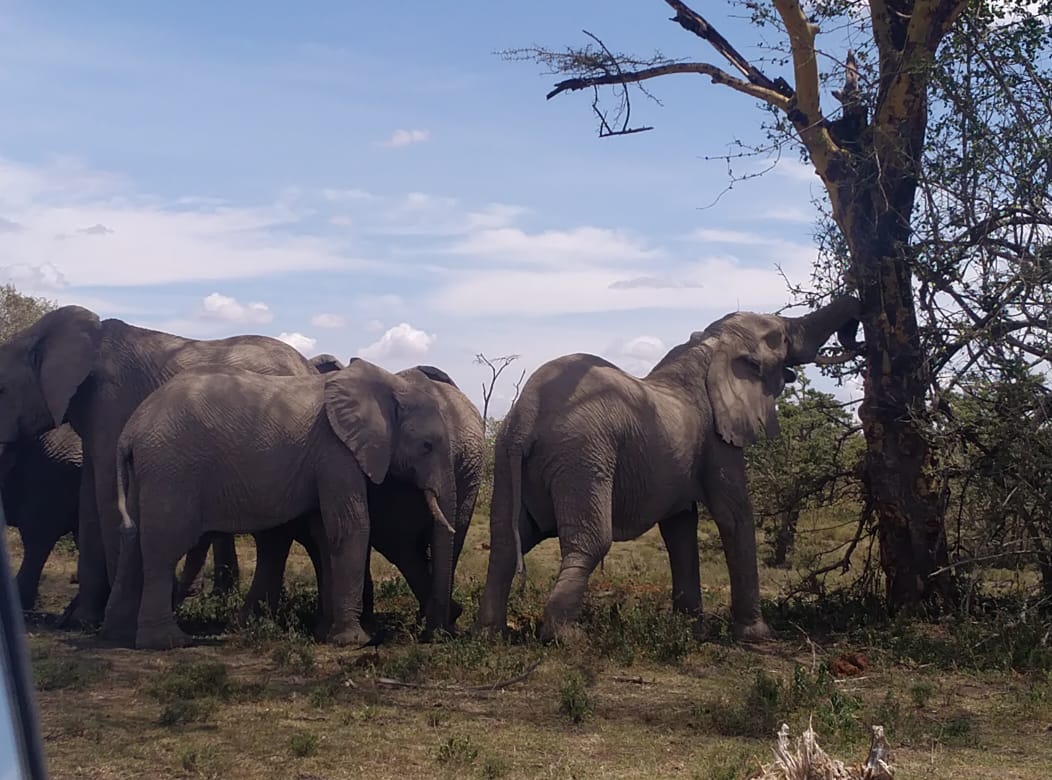
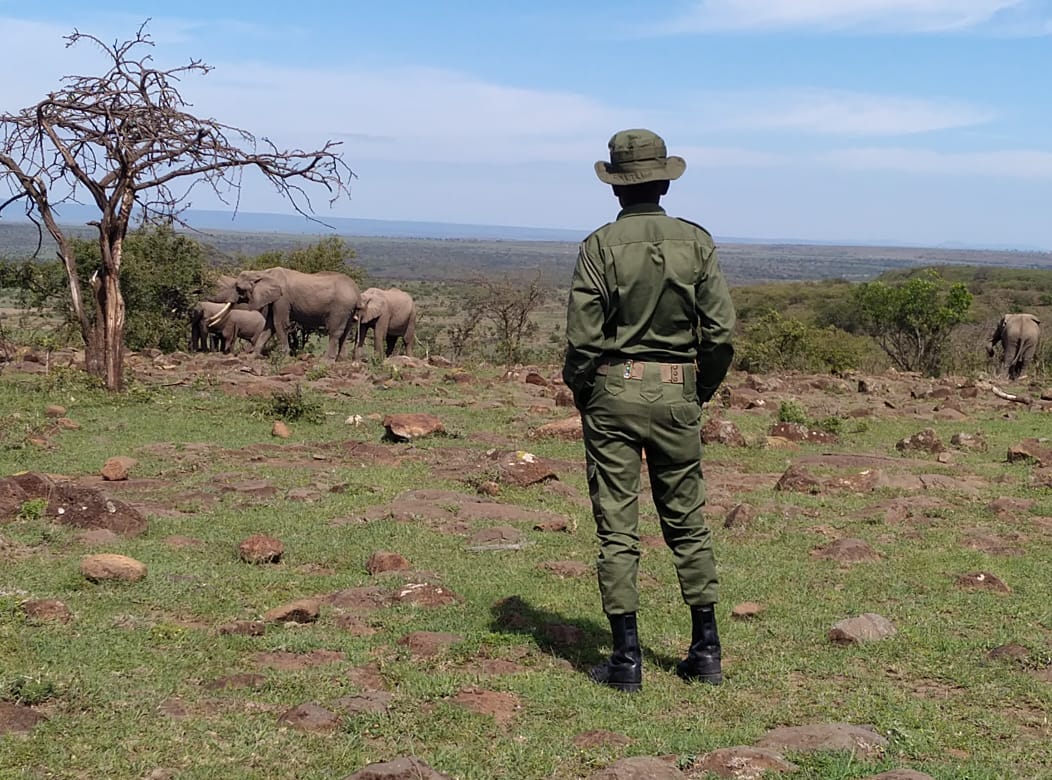
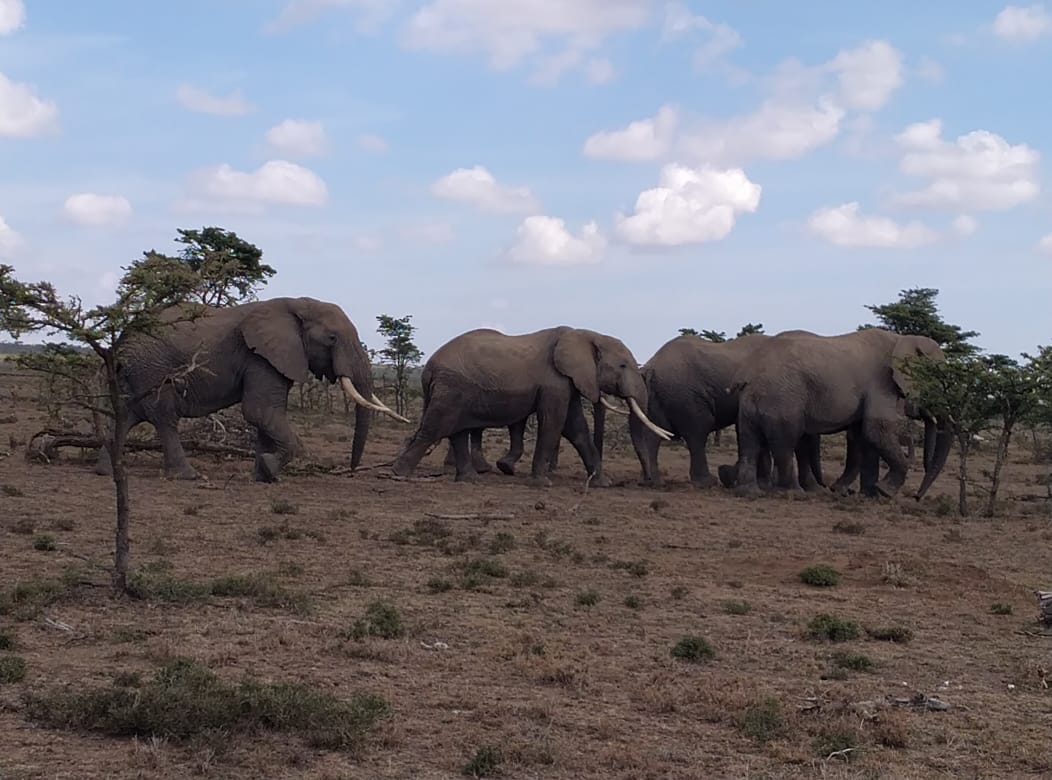

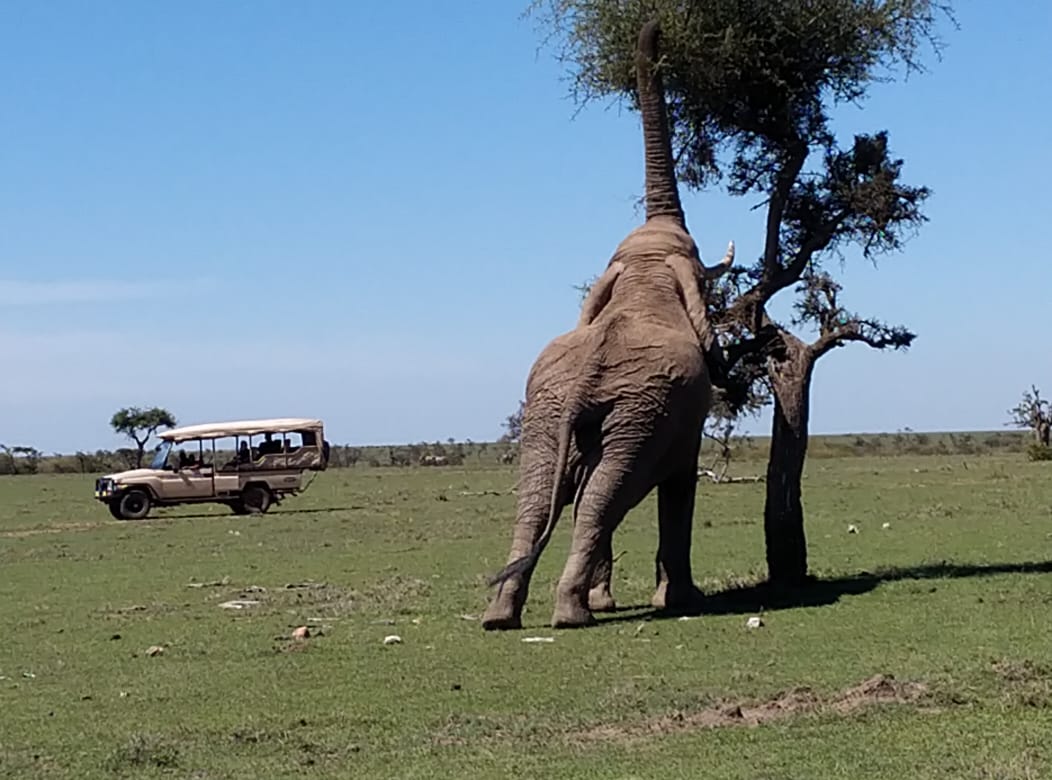
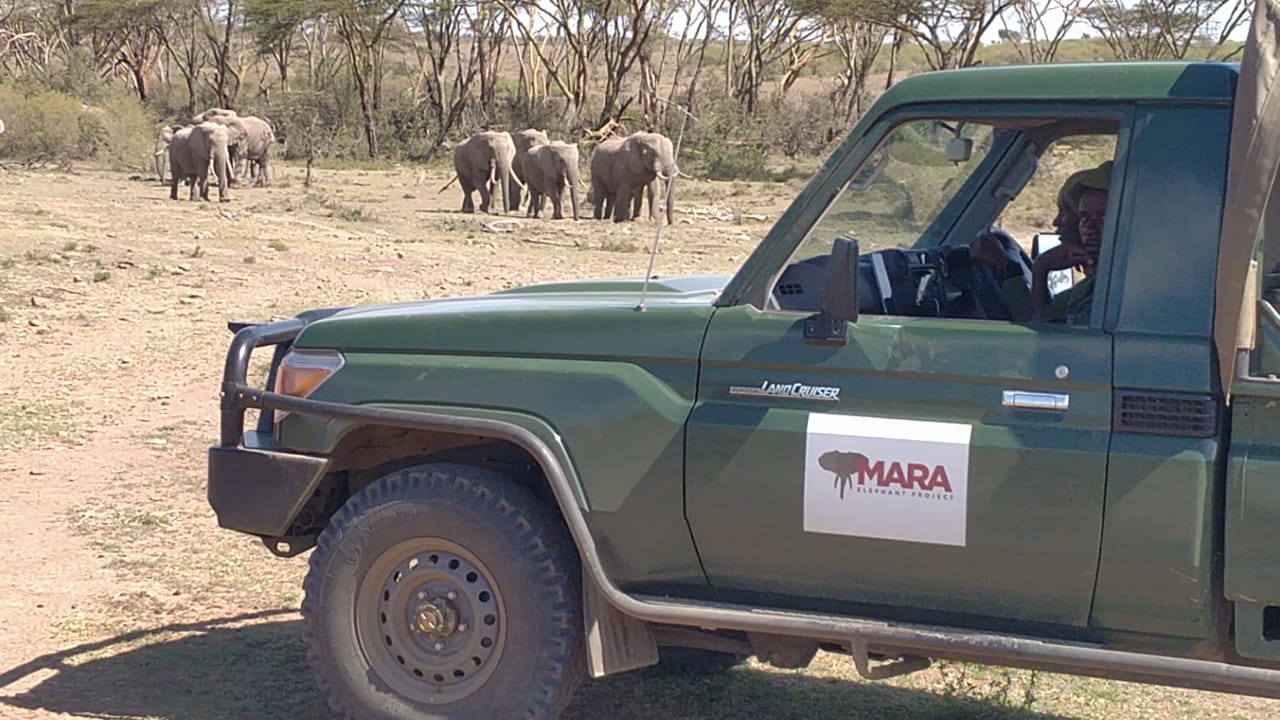
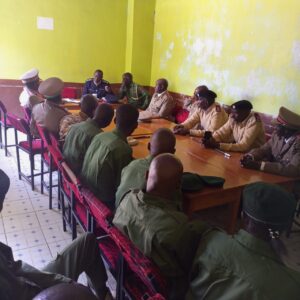 MEP rangers took part in several community celebrations in the fourth quarter. The recently launched “Kilo” ranger team was graciously invited to celebrate Mashujaa Day (Heroes Day) alongside the community and operational partners to discuss illegal logging activities taking place in their area of patrol. It was a great chance for the team to speak with the community leaders directly about the impact of logging at the forest’s edge. MEP rangers were grateful for the opportunity to meet and speak directly with the assistant county commissioner and community leaders to celebrate their work as conservation heroes. In December, rangers from the MEP “Bravo” team were graciously invited to join the community for a Christmas day celebration, and, as our Bravo team rangers said, they “happily celebrated a Merry Christmas together”.
MEP rangers took part in several community celebrations in the fourth quarter. The recently launched “Kilo” ranger team was graciously invited to celebrate Mashujaa Day (Heroes Day) alongside the community and operational partners to discuss illegal logging activities taking place in their area of patrol. It was a great chance for the team to speak with the community leaders directly about the impact of logging at the forest’s edge. MEP rangers were grateful for the opportunity to meet and speak directly with the assistant county commissioner and community leaders to celebrate their work as conservation heroes. In December, rangers from the MEP “Bravo” team were graciously invited to join the community for a Christmas day celebration, and, as our Bravo team rangers said, they “happily celebrated a Merry Christmas together”.
 Speaking of year end celebrations, in December, Mara Elephant Project hosted our year-end celebration lunch for staff. During the lunch, CEO Marc Goss announced promotions and presented badges of rank with MEP Chairwoman Beatrice Karanja. Bea concluded the ceremony with an uplifting speech that encouraged all of us to continue on with our important work into 2023 and emphasized how she and her fellow trustees were right behind us supporting our efforts.
Speaking of year end celebrations, in December, Mara Elephant Project hosted our year-end celebration lunch for staff. During the lunch, CEO Marc Goss announced promotions and presented badges of rank with MEP Chairwoman Beatrice Karanja. Bea concluded the ceremony with an uplifting speech that encouraged all of us to continue on with our important work into 2023 and emphasized how she and her fellow trustees were right behind us supporting our efforts.
Jeffrey Wu Photography
 Finally, MEP ranger Stanley Momposhi placed second in the Ultra MARAthon on December 10. The marathon had over 230 runners including 65 relay teams. Stanley made us proud by bringing home the silver medal after running the entire 50 km course. MEP rangers alongside conservancy rangers also provided security for the race.
Finally, MEP ranger Stanley Momposhi placed second in the Ultra MARAthon on December 10. The marathon had over 230 runners including 65 relay teams. Stanley made us proud by bringing home the silver medal after running the entire 50 km course. MEP rangers alongside conservancy rangers also provided security for the race.

